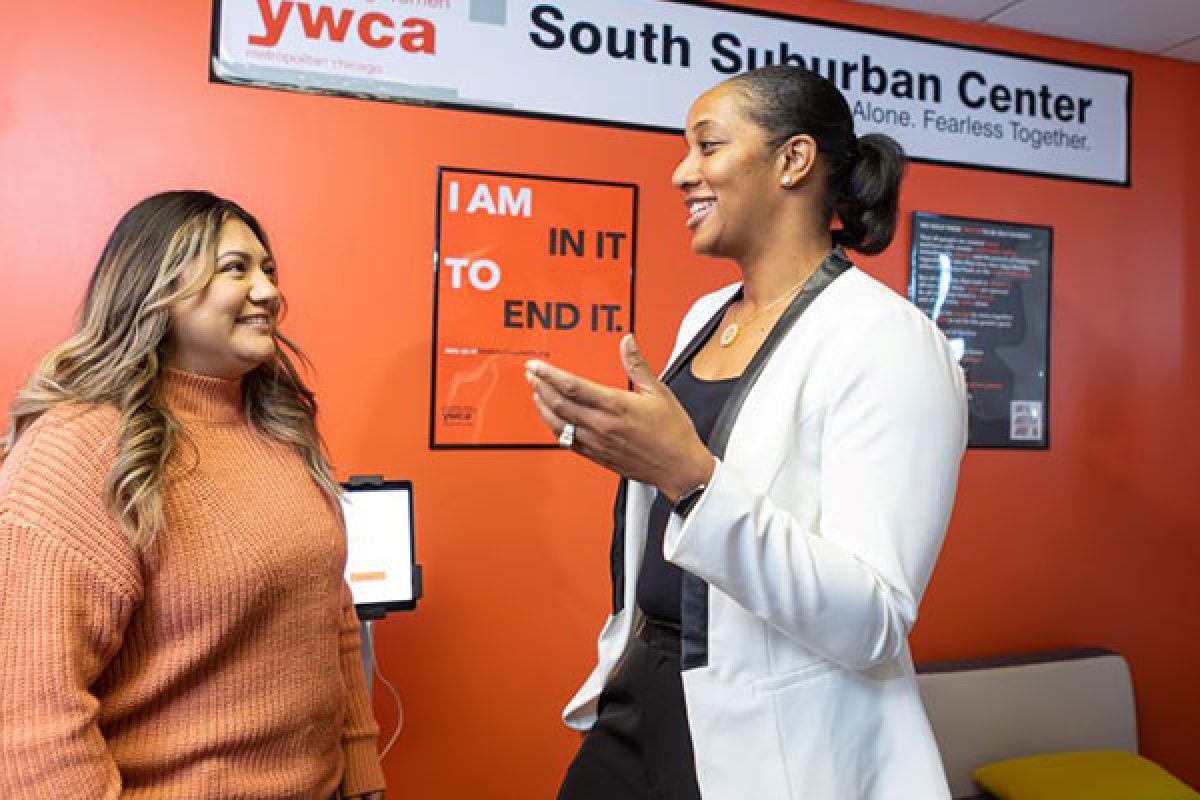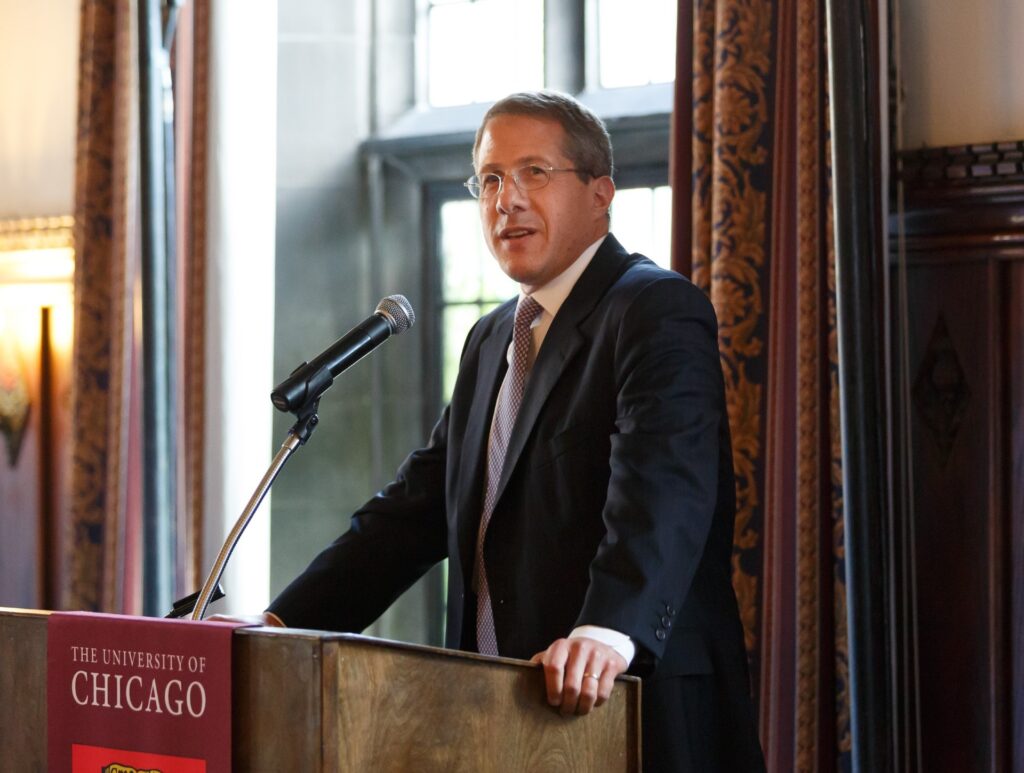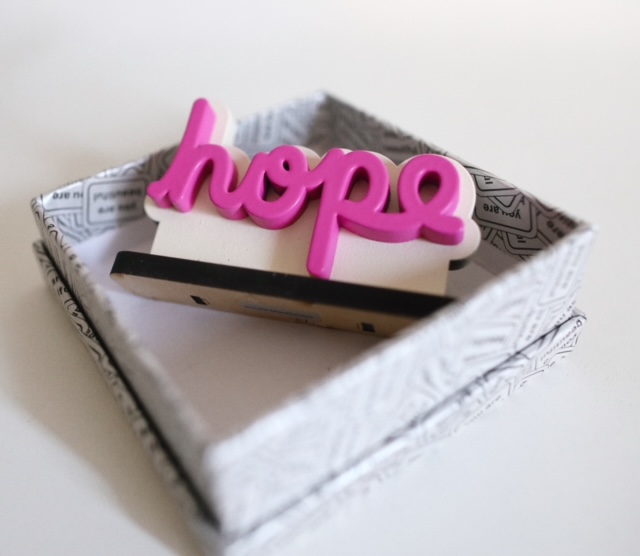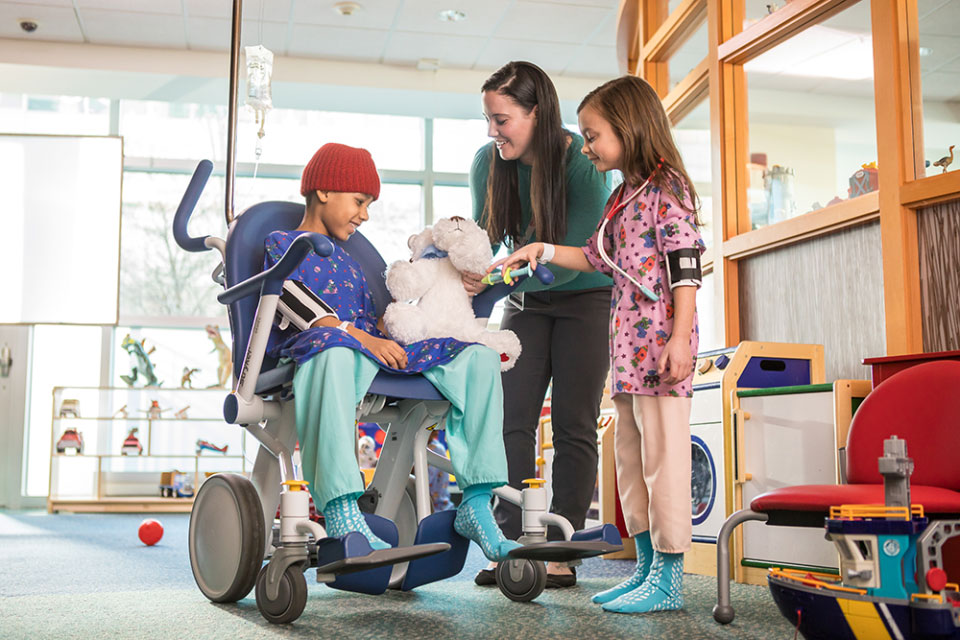The University of Chicago Medicine’s Liaisons in Care (LinC) program, funded by an $8 million grant from the AbbVie Foundation, created and recently expanded a network of community health workers (CHWs) across various non-profit partner organizations located throughout the South Side of Chicago. Hired by partner organizations with grant funding provided by the LinC program, the CHWs serve South Side communities by connecting residents to healthcare resources. Currently, the LinC network includes seven organizations, in addition to UChicago Medicine, creating a broader impact than any organization acting alone.
The LinC Community Grant provided funding for nine full-time and six part-time jobs. “By expanding our network of CHWs and strengthening collaborations with community partners, the LinC program deepens our commitment to the South Side of Chicago,” said Brenda Battle, MBA, BSN, senior vice president, community health transformation and chief equity officer.
UChicago Medicine established the CHW program in 2015 to extend healthcare services into South Side neighborhoods and address social determinants of health (SDOH)—the conditions in the places where people live, learn, work, and play that affect a wide range of health and quality-of-life outcomes.
Residents of Chicago’s South Side face significantly higher rates of chronic conditions than the rest of Chicago. The LinC program identified seven chronic conditions as priorities, which reveal the enormous impact of SDOH on the lives of South Side residents: asthma, heart disease, neurological disorders, sickle cell disease, hypertension, diabetes, and cancer. LinC also identified maternal and child health as priorities requiring attention and resources.
“The impact of the AbbVie Foundation’s gift is evident in the scale and quality of outreach and services offered to community residents. LinC has helped to address social determinants of health and improve health outcomes for individuals experiencing multiple chronic diseases and for pregnant women,” said Battle.
LinC partner organizations identified barriers keeping South Side residents from accessing healthcare. One LinC partner, Advocates for Community Wellness, recently conducted a survey of patients to learn what conditions prevented them attending healthcare appointments. Residents talked about lack of health insurance, transportation, and childcare; described bad experiences at clinics in the past; and reported a poor understanding of what an exam involves or why it is needed.
CHWs are uniquely positioned to address these barriers. “Community health worker programs are incredibly important because we quite literally reach people where they are—in their homes and in the community—working to increase equitable access to healthcare, healthcare literacy, and support needed in order to have a fuller sense of well-being,” said Mary Kate Wagner, manager of community health worker programs at the University of Chicago Medicine’s Urban Health Initiative.
The ability to meet people where they live and work is one of the key strengths of the program. For instance, LinC partner organization Equal Hope focuses on cervical cancer outreach in areas with the highest morbidity and mortality rates, working with patients who are uninsured. “When I’m canvassing, I’m going to a nail salon, beauty supply store, braiding salon, gas station, Walmart, schools, and churches, wherever people are, putting flyers out, letting people know that these services are available for free,” said Lydia Doe, community health worker at Equal Hope.
LinC partners can also serve as guides to healthcare resources. YWCA Metropolitan Chicago South Suburban Center, another partner organization, helps residents with high blood pressure and diabetes. Their outreach workers use the term “community health navigator” to describe their work. “The term was important because healthcare is about navigating the system. We navigate them through the steps of finding a provider, getting medication, finding resources,” said Nashone Goolsby-Davidson, coordinator of case management. She added that they offer an entrance into a network of services. “If we don’t have the resources they need, we can get them to someone who can help them. Having us in the community removes the intimidation barrier. We don’t have a white coat on, they don’t need special lingo to talk to us, they don’t need to make an appointment, so we can talk to more people. It’s more humanized.”
LinC partners often use community events for outreach. “Events tell people that they are not alone. You feel connection to the community. People share their own stories,” said Yesenia Hernandez, community health navigator with the YWCA. She is bilingual, which also reduces a barrier to healthcare access and literacy. “It makes us more approachable,” she explained. “No matter where we go, we can communicate—there’s no language barrier.”
LinC partners form a close-knit network. They meet and support each other through the LinC Learning Collaborative, where they also find opportunities to share resources. During the October 2022 meeting, partners shared their missions, approaches, and accomplishments. Chicago House Health and Social Service Agency focuses on HIV prevention through pop-up events and HIV testing events. Chicago Women’s AIDS Project focuses on improving links to primary care and mental healthcare. At the LinC Learning Collaborative, representatives from the two organizations discussed opportunities for collaboration and noted that it takes more than one organization to make a difference. “You work stronger when you work together. If there’s someone who needs something that’s out of our reach, I can rely on other members of LinC,” said Hernandez.
The Learning Collaborative also offers a chance for comradery and mutual support, which help prevent burnout among the CHWs in an intense role. “You can find yourself taking on other people’s emotions. It’s really important to know yourself so that you are not carrying other people’s emotions with you,” said Doe. “In the Learning Collaborative, we are talking together about challenges, about what helps us cope so you don’t feel like you are on your own.”
LinC partners build networks of trust, drawing on the rich sense of community in South Side neighborhoods. Through events and individual meetings, they have served thousands of South Side residents since the program’s inception, but the numbers don’t capture the depth of engagement between CHWs and patients. “We’re not just going to give you a piece of paper,” said Goolsby-Davidson. “We’re also going to be here in six months to help you.”




